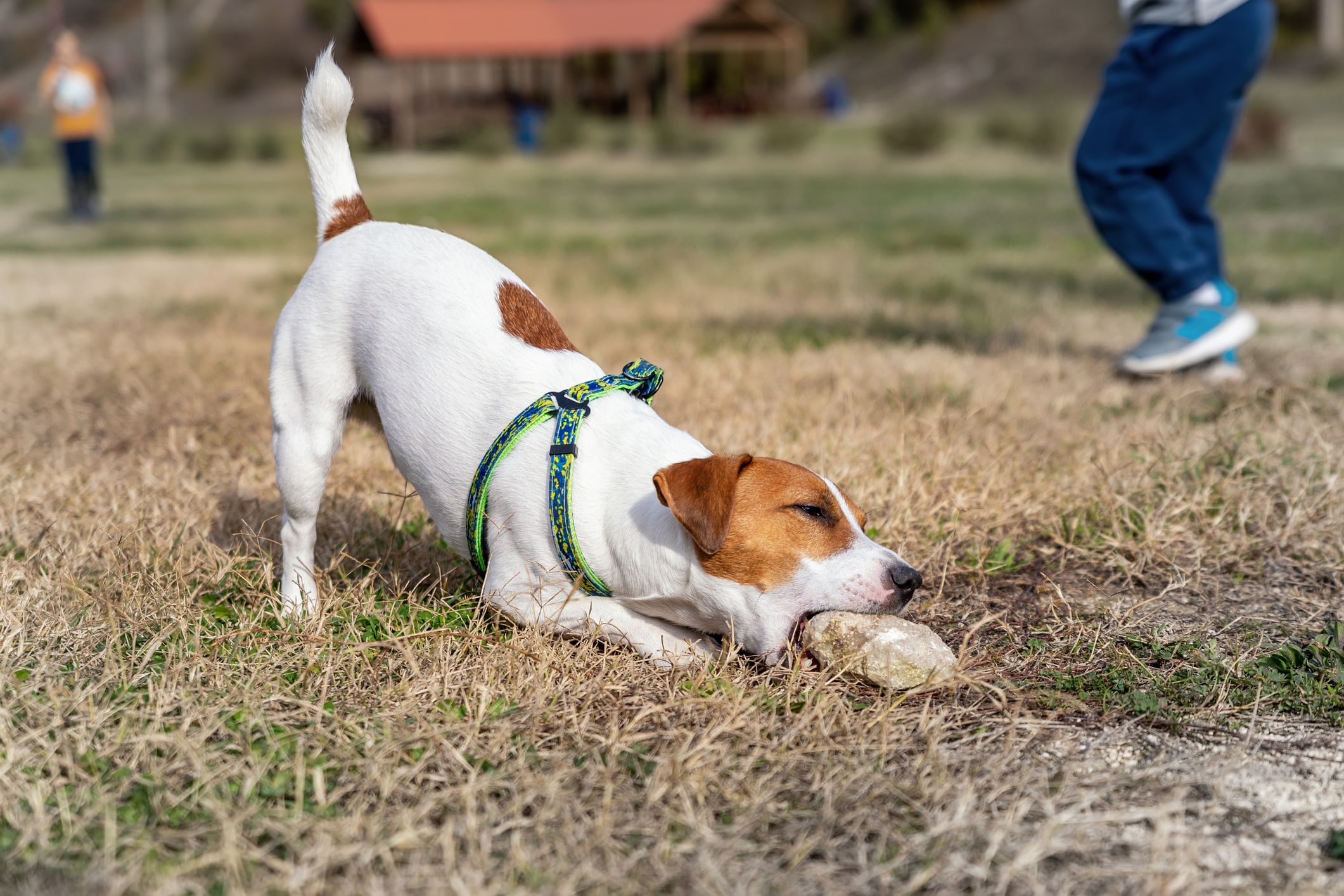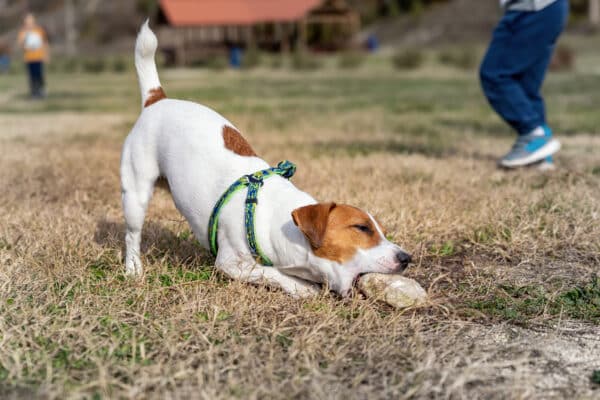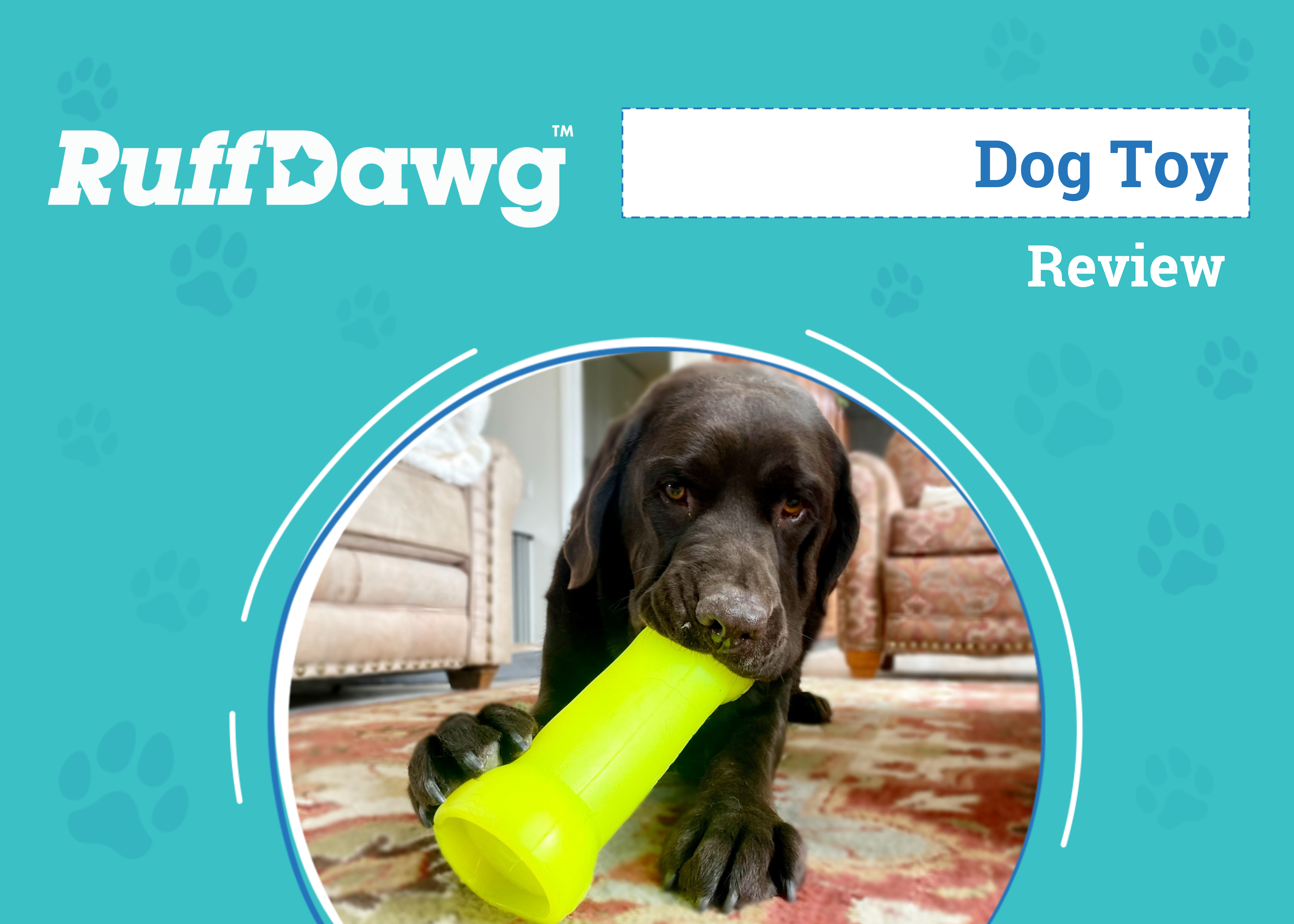Click to Skip Ahead
Dog owners are no strangers to odd canine behavior, and one such weird and potentially dangerous behavior some canines may engage in is eating rocks. If your dog is eating rocks, you’ll need to assess the situation to determine why your dog is eating rocks and how to stop it. While it’s not uncommon, the reasons can range from boredom, seeking attention, curiosity, or even underlying medical issues.
In this guide, we’ll explore deeper into the strange world of canine rock-eating and what you can do to stop the behavior before it becomes a dire medical issue.
The 6 Reasons Why Dogs Eat Rocks
1. Seeking Attention
Dogs thrive on having our undivided attention, and some dogs will do whatever it takes to get it, even if it means eating rocks. Dogs will do just about anything to get a reaction, whether positive or negative, out of you if they are in an attention-seeking mood, and eating rocks could just be exactly what gives them the attention they crave.
Your dog may become frustrated if you’re not paying attention to them, and if you’ve scolded your dog before about eating rocks, they will remember and do it again because they know it will spark a reaction.
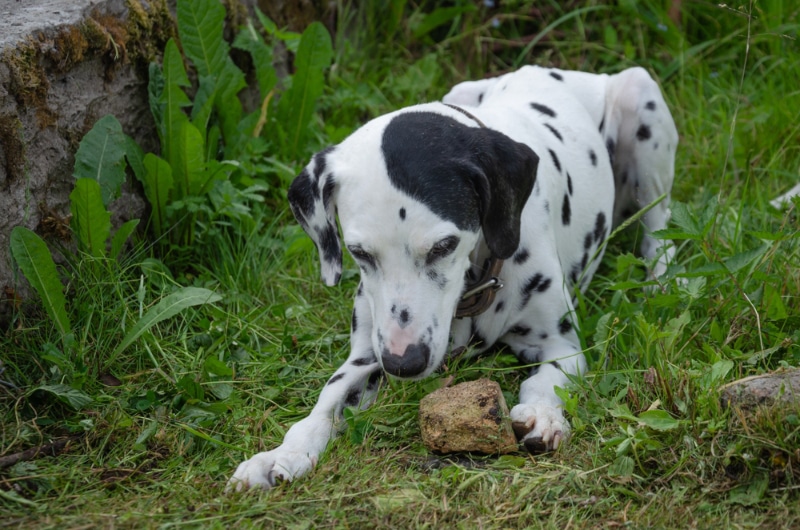
2. Boredom
To us, it may seem like a dog’s lounging lifestyle couldn’t get much better, but the fact of the matter is they need more to do than just lie around. Dogs also need mental stimulation. For some this may be as simple as a walk, while others need a job to do. If they aren’t mentally stimulated, they may turn to other behaviors to fill their time, including eating rocks or other inedibles.
3. Curiosity
Dogs are curious beings and love to be nosy. Unfortunately, sometimes curiosity does more harm than good. Dogs may get into trouble when curiosity strikes, and your dog eating rocks may simply be that your dog was curious about these objects, or they have a taste or smell that they’re interested in. Since dogs don’t have hands to investigate things, their mouths do this for them and allow them to explore their surroundings.
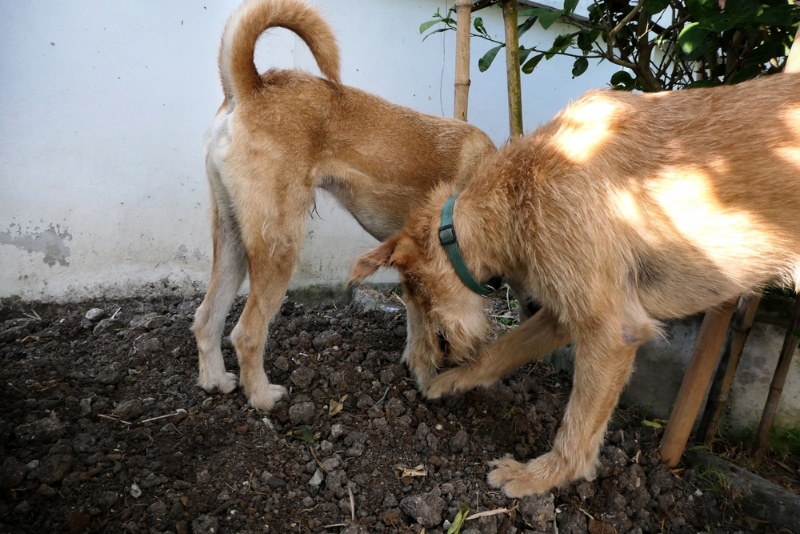
4. Teething
When a puppy is going through the teething stage, rocks may seem like a good thing to gnaw on to help relieve the pain and discomfort. Smooth, rounded edges can seem like just the thing for swollen, painful gums. You may also see your puppy gnawing on wooden furniture, shoes, or anything else that’s firm.
5. Underlying Medical Condition
An underlying medical condition could indeed be the reason for this behavior, but you’ll need your veterinarian to rule out this possibility. Possible medical conditions can be due to malnutrition, nutrient deficiencies, anemia, internal parasites, diabetes, worms, and even stomach tumors.
If your dog is eating the rocks or anything else that seems weird, the first step should be an examination to determine the problem so you can address it. If your dog has diarrhea and/or vomiting, take them to the vet right away. Eating non-food items is called pica and can come about from medical problems as well as psychological ones.
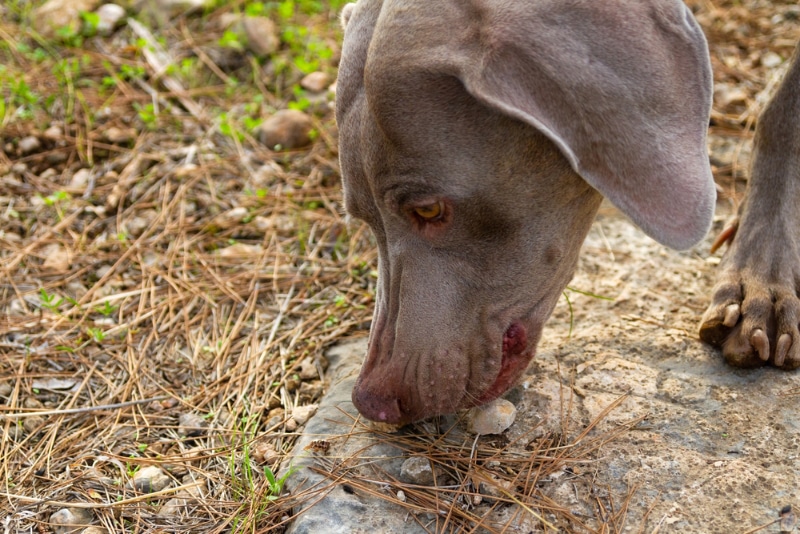
6. Psychological Problems
Psychological or behavioral problems can also be what’s behind your dog’s rock eating. These issues can range from anxiety and stress to compulsive disorders. Animals that were weaned too soon, have negative experiences in their past, or just general stress or anxiety may all eat rocks or other non-food objects as a way to cope.
How to Stop Your Dog From Eating Rocks
It’s imperative to stop your dog from eating rocks because of the health risks involved. When a dog swallows rocks, they can cause blockages in the intestines, vomiting, diarrhea, and even choking. Rocks can have sharp edges, which can cut the gums and break teeth as well.
Some dogs may put rocks in their mouths but then spit them out, which isn’t necessarily good for them, but the real danger is when a dog swallows them. Nonetheless, this is not an activity you want your dog to engage in, so let’s see what you can do to stop the unwanted behavior altogether.
1. Take Your Dog to the Vet
First and foremost, you should take your dog to the vet for an examination to rule out any possible medical conditions that could be causing the behavior. As we’ve mentioned, certain medical issues, such as parasites, anemia, malnutrition, nutrient deficiencies, internal parasites, etc., can cause your dog to eat rocks. That said, ruling medical conditions out should be the number one priority.
Your vet may also be able to diagnose psychological behaviors as the cause for your dog’s rock eating and give you tips on how to help manage them.

2. Provide Safe Chew Toys
Once medical conditions have been ruled out, it’s wise to assess your dog’s toy box. Keeping plenty of dog-safe toys around while your dog is outside can redirect your dog to something safer to chew on. Ensure you exercise your dog as well. After all, a tired pooch is less likely to get into mischief. Throw a ball around in the yard, offer them a puzzle toy to figure out, or engage in a game of tug-of-war—anything to provide safe exercise will benefit your dog both mentally and physically.
3. Train and Redirect the Behavior
Dogs are intelligent beings and are perfectly capable of being trained on what’s acceptable behavior and what is not. Teaching your dog ‘leave it’ or ‘drop it’ will help your dog learn that chewing on rocks isn’t acceptable. Just be sure to be consistent in your commands so that your dog knows rocks are off limits at all times.
When your dog drops the rock, be sure to praise them and then give them something else to chew on or do.
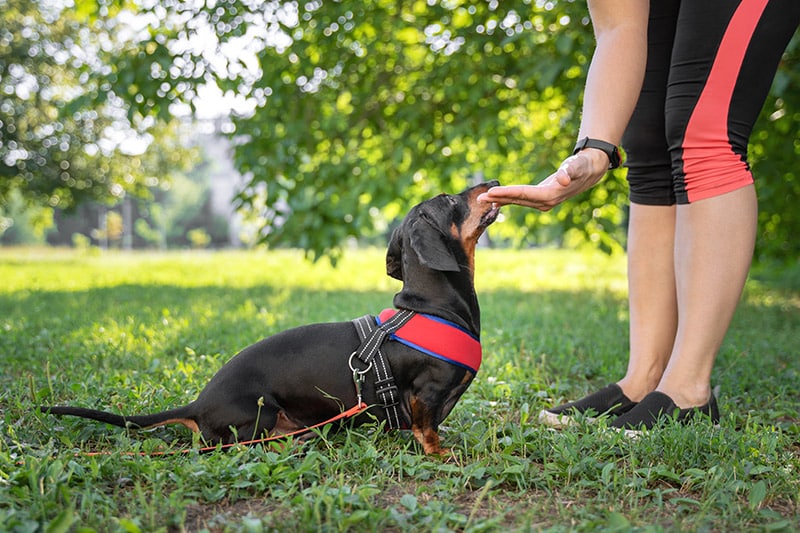
4. Remove the Rocks
If you really want to ensure your dog will not eat rocks in your yard, one surefire way is to simply remove the rocks. However, removing every rock in your yard may not be possible. If you have many rocks, you can try just removing those that your dog can swallow.
If you use gravel or other types of rocks as ground cover in your garden, you may want to restrict your dog access by putting up some sort of barricade if behavior modification isn’t working.
Conclusion
If your dog is eating rocks, the first step is to have them examined by your vet to rule out possible medical conditions that may be causing the behavior. It is only then that you can rule out other factors, such as boredom, attention-seeking, or curiosity.
Spending the time to train your dog not to eat rocks will often go a long way, and if you have trouble achieving this task, you may need additional help from a certified veterinary behaviorist to fully correct the problem.
Featured Image Credit: Gorloff-KV, Shutterstock

